In an industry at the crossroads of innovation and tradition, the automotive sector’s shift towards electric vehicles underscores the critical need for diversity and skilled workforce, capable of propelling the sector into its next phase of growth and innovation.
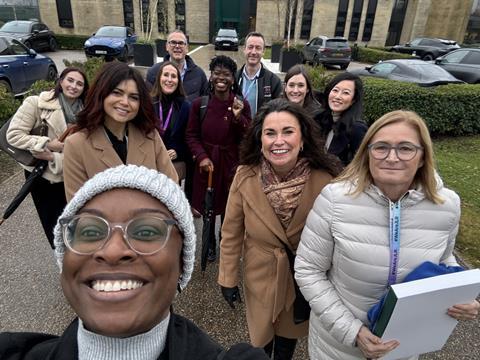
Ekaterina Serban, head of privacy and information security at tier supplier Bosch, and international partner of the World Business Angels Investment Forum (WBAF) asks an important question: “Within the next five to ten years, the millennial generation will begin to go into retirement, and who will be left?”
According to Serban, it is a question a lot of companies need to think about in their business strategy for the next five to ten years. She says they need to think about how the labour landscape will change, how strategy will change with emerging technologies, and they need to prepare the next diverse generation of experts and leaders with different mindsets and skill sets.
Even though women make up about half of the labour force, they only account for a quarter of the automotive manufacturing industry, according to advisory firm Deloitte. Within that they hold an even smaller proportion of leadership positions. Women already in the industry need to be able, and supported, to climb through the ranks to leadership, while more emphasis needs to be placed on recruiting women by OEMs and suppliers alike.
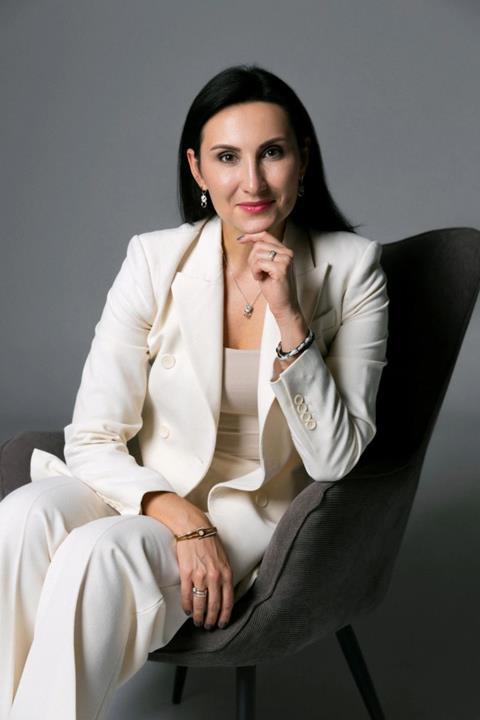
Lateral strategy
Serban, who has been working at Bosch for 16 years, considers herself a modern leader. With two degrees under her belt (in International Economics and International Law), she worked her way up within the company, starting in the logistics and supply chain sector, before expanding into IT and digital implementation – something of which she didn’t previously have experience. “I didn’t have an IT background but my motto in life is that opportunities don’t just happen, you create them,” she says. “So I thought, ‘why not?’”
Serban’s advice to women in the industry is to gain experience by making lateral moves within a company, something she also did. “I did a lot of IT and digital-related projects and transformations in finance, purchasing, supply chain and manufacturing,” she says. “I have been in almost all production locations of Bosch, from Mexico to Malaysia, so I have a good understanding of how the business and the manufacturing side works.”
From there, she was approached by a manager to work on privacy and cybersecurity. “Again, I asked, ‘why not?’ I knew I could learn things, and considering that I had the profound business background, I knew the products, and I had the law degree, I was quite a good fit,” she says. Serban established high performance global privacy and cybersecurity teams for a consumer business division of 20,000 employees and moved into the corporate level of Bosch to lead and streamline privacy, information security and digital compliance across divisions and regions.
Mandisa Gordon, finance transformation manager at JLR, also recommends making lateral moves and learning as much as possible about the industry through various roles. She entered into the automotive industry unintentionally seven years ago, contracting as a project manager and supporting the delivery of powertrains at JLR, which she says was a great introduction to the industry. “I think it was a baptism of fire, going into the plants and seeing how things are done where the majority of our workforce is, but it was a much-needed baptism for me because if I hadn’t done that, I think my view of what we do in this company would have been skewed,” she says. “I think you need to have that understanding of what happens on the shop floor and how things are done.”
From there, Gordon was encouraged by her line manager to become a permanent member of staff and “lay roots in JLR”, so she applied for a position in Special Vehicle Operations (SVO), which brings JLR’s specialist low-volume products under one roof. Here, Gordon spent more than three years building vehicle lines, from establishing business cases and then managing the project with the engineering, finance and marketing teams.
“I think it was a baptism of fire, going into the plants and seeing how things are done where the majority of our workforce is, but it was a much-needed baptism for me because if I hadn’t done that I think my view of what we do in this company would have been skewed” – Mandisa Gordon, JLR
“At a bigger company like JLR, you have more of an opportunity to move around and try different things, but that’s got to be something that you push for,” she says. “No one is going to tell you about these opportunities, you’ve got to make them. We have to create opportunities and show that we want to do more things rather than waiting for someone to ask us.”
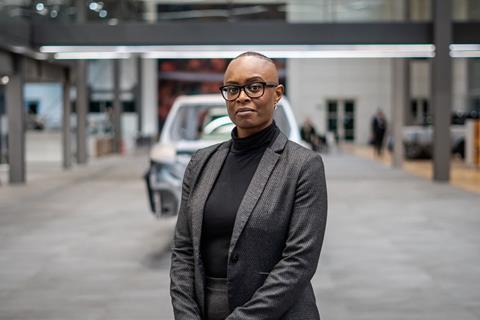
Technology experts
Bosch’s Serban says there is a shortage of experts in the industry, particularly in areas focused on technology, such as privacy and cybersecurity.
“Cyber topics and artificial intelligence are new capabilities,” she says. “It’s not always about age, and we do have older people in the workforce who are fantastic at grasping new technology, but they are the minority. We previously didn’t have the rapid technological advancement that we have right now, and it’s sometimes quite challenging when you speak to senior leaders in the industry about new technologies. We need to prepare ourselves for upcoming technologies and make sure that we have more speed, flexibility and, of course, women in this area.”
Serban believes that perspectives need to shift. Rather than placing a focus on recruiting for diversity and inclusion, on the basis of regulation and best practice, there needs to be an emphasis on how recruiting more women from different backgrounds can help prepare OEMs and suppliers to be more competitive in the future.
“In the automotive sector and beyond, this holds significant importance, as we witness the emergence of new technologies such as automation and AI, necessitating the acquisition of new skill sets,” she explains. “It’s imperative that we consider how we’re equipping industries to pursue their digital aspirations. This serves as my call to action for OEMs.”
Programmes of support and learning
In her seven years at JLR, Gordon has been an active advocate, not just for women in the industry, but for people of colour and other diverse groups. She says that she felt open to challenge the teams and leadership around her, and asked: “Why don’t I see people in leadership roles that look like me?”
Gordon says that it’s not enough to support women as a whole in the automotive industry – it is critical to specifically support and promote black women, who are severely under-represented.
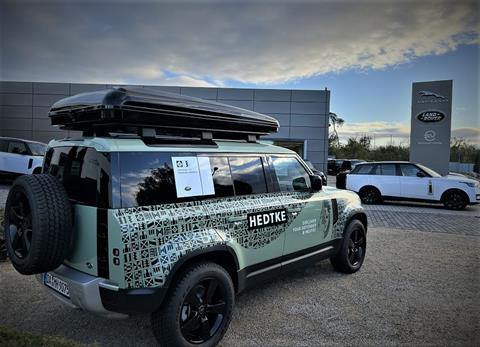
In the past year, Gordon became chair of JLR’s Race, Ethnicity and Cultural Heritage (Reach) network, which became the OEM’s largest employee-led network in November. Through the network, she and other employees have hosted events and educational sessions for the likes of South Asian Heritage Month and Black History Month.
One of the initiatives she is most passionate about is the Reverse Mentoring programme. Through this, JLR employees from diverse racial and ethnic backgrounds mentor board-level leaders, with each party committing to meet regularly over six months to share their experiences both inside JLR and in the wider world. For this, Gordon created a framework for those involved to follow every month, which included topics to discuss, such as, ‘can you bring your whole self to work?’ and talking about negative experiences people from diverse racial backgrounds face.
Every board member of JLR’s team took part, and Gordon herself reverse mentored JLR’s CEO Adrian Mardell. When Barbara Bergmeier joined JLR in 2022 to head up its Industrial Operations division, which covers manufacturing, purchasing and supply chain, she became one of the progamme’s biggest advocates.
“We need leaders that will develop the company further. We need to plan and look at the key people in leadership positions who will soon retire, and plan for a talent succession” – Ekaterina Serban, Bosch
“The lasting impact of that, not just at board level, but for our leaders at every level, has triggered a change in the organisation, where people now have relationships that transcend the programme,” she says. “It’s not that people complete the six-month programme and they’re done. We’ve seen our leaders actually sponsor these employees and aid them in their careers.”
Around 50 people took part in the pilot programme, which then snowballed to more than 250 people at JLR getting involved. Gordon says demand for the scheme is still growing – there is now a waiting list filled with employees and leaders alike. As a result of taking part, she says that leaders have reconsidered their must-haves when recruiting and have taken actions to recruit a broader range of people. That includes removing the requirement to have university degrees, or specifically recruiting for a more diverse pool of applicants. She says: “It’s phenomenal to see the relationships people have with board members and other leaders across JLR as a result, that’s something you can’t pay for. The benefit is instantly there for the leader but also for the people at JLR, and it’s free. I have my day job, but I could easily fill my time in my role day-to-day just doing the Reverse Mentoring programme.”
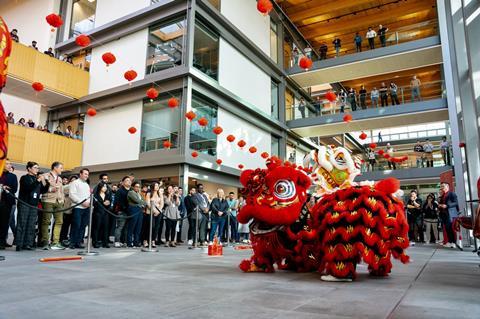
Plans for succession
Diversity and inclusion shouldn’t end with recruitment and support programmes though, warns Bosch’s Serban. She says that there should be a plan for new, talented women in the industry to help them become the leaders of the future.
“We need to start putting in place proper succession plans, because up until now we haven’t,” she says. “Following the pandemic and rapid technological advancements in the past two to three years, there has been a noticeable shift in mindset. Many individuals now prioritise a balanced approach to work. While achieving this balance is important, it’s equally crucial for leaders to drive continued company growth. Therefore, it’s imperative to identify and develop leaders who can propel the company forward, especially considering the imminent retirement of key personnel, and strategise for effective talent succession planning.”
With this in mind Serban stresses the importance of bringing in and supporting a diverse, skilled workforce now. “And that doesn’t only mean women, it means people of colour, people who speak other languages, people with different mindsets. That’s the point.”
Serban adds: “The people entering our workforce now, the generation Z talent, are going to be our industry’s future. OEMs need to think about their business leaders of the future, now.”






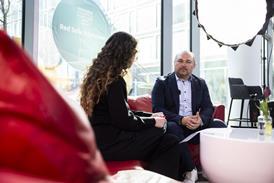


















![Global[1]](https://d3n5uof8vony13.cloudfront.net/Pictures/web/a/d/s/global1_726550.svgz)














No comments yet